#1 Mediterranean Diet and Fado - Tavira, Portugal
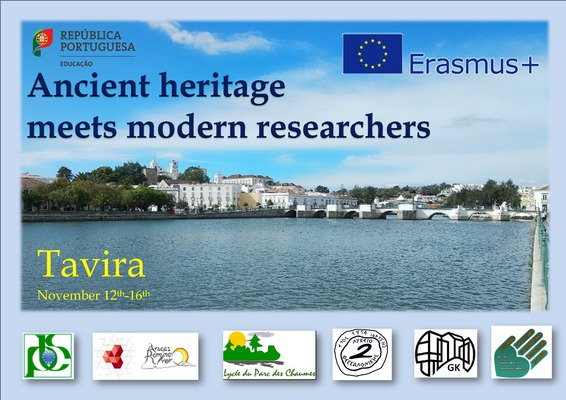
This first meeting explored the history and main goals of UNESCO.
The UNESCO aims at creating the conditions for the dialogue among civilisations, “to contribute to peace and security by promoting collaboration among the nations through education, science and culture in order to further universal respect for justice, for the rule of law and for the human rights and fundamental freedoms which are affirmed for the peoples of the world, without distinction of race, sex, language or religion, by the Charter of the United Nations”.
In this context, Tavira’s meeting focused on the Mediterranean diet and Fado (a Portuguese traditional music). The Mediterranean diet is protected by the UNESCO not only as a food diet, but also as an healthy way of life.
The Mediterranean Diet
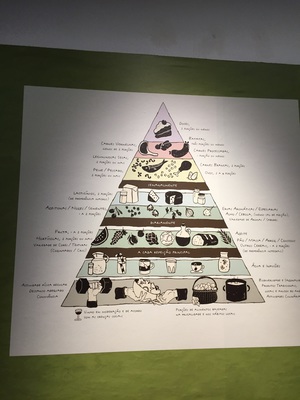
Mediterranean Diet - Palácio da Galeria (Tavira)
An healthy way of life starts with healthy food, hence the importance of farmers' markets. Tavira's market provides fresh fruits, vegetables, meet and fish. Most are local products and offer a great variety of food.
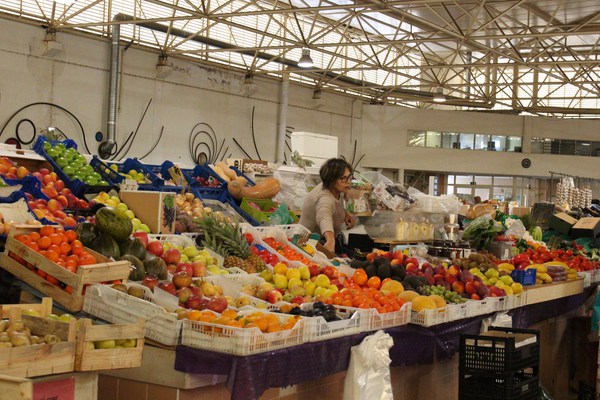
Fruit seller at the market (Tavira)
Portuguese students taught the foreign students about their food habit directly on the market, so they could experience first hand traditional Portuguese cuisine and food culture.
Cultural globalization had become a threat to the Mediterranean diet: it jeapordized this healthy and specific way of life. That's why UNESCO protects it, and the Portuguese students are passing it down to their fellow students.
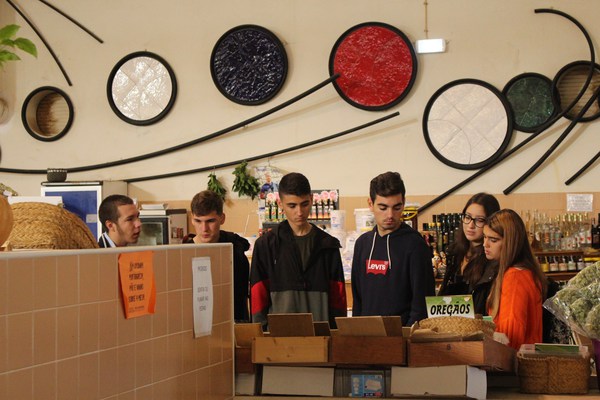
Students at the market (Tavira)
The students and professors gathered at the end of the meeting for a traditional Mediterranean meal, cooked by Portuguese citizens, so they could experience Mediterranean traditional cuisine first hand.
Fado
Fado is a Portuguese traditional music. It is popular music. Traditionally, this music allies a singer, most often a woman, and a musician playing Portuguese guitar (a round, 12-stringed guitar).
Fado appeared at the beginning of the 19th century and is still an important feature of Portuguese culture.
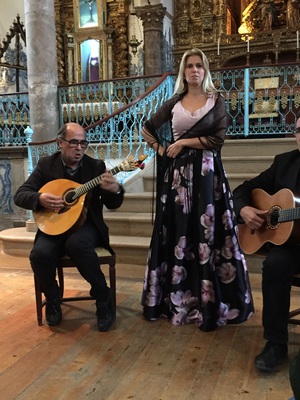
Fado concert at the Mercy Church (Igreja da Misericordia - Tavira)
An instructive first meeting
Throughout the week, the students opened up to a different culture and discovered part of European diversity. They gathered in a spirit of sharing and learned about Portuguese cultural specificity.
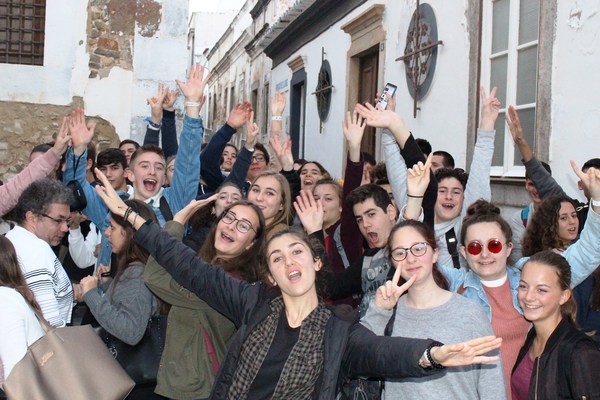
Students in front of the Museum of Fado (Fado com historia - Tavira)
They are all looking forward to the next meeting.
Video #1 - The Mediterranean Diet
Video #2 - Fado